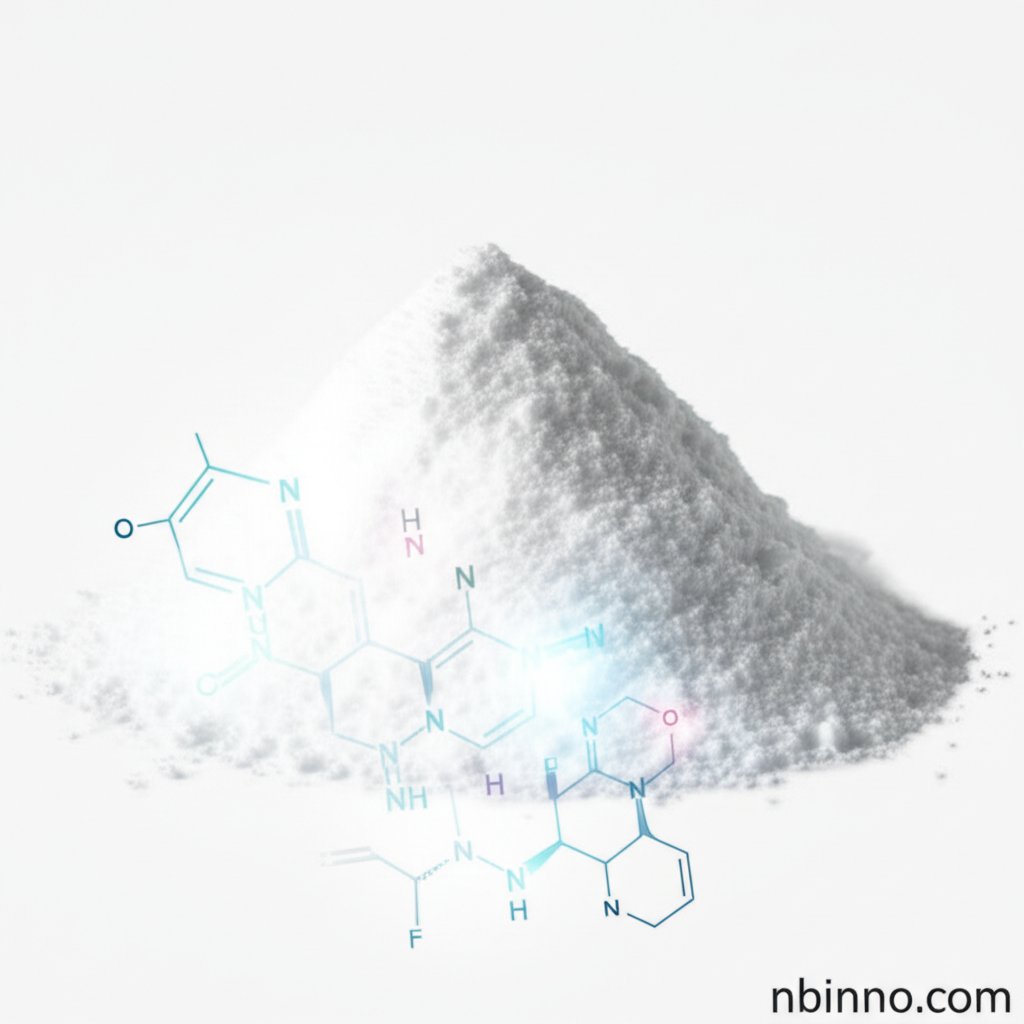Benserazide: Enhancing Parkinson's Treatment Efficacy
Discover the critical role of Benserazide in optimizing Parkinson's disease therapy through enhanced dopamine availability.
Get a Quote & SampleProduct Core Value

Benserazide
Benserazide is a key pharmaceutical compound that acts as a peripherally-acting aromatic L-amino acid decarboxylase inhibitor. Its primary function is to prevent the peripheral metabolism of Levodopa, thereby increasing the amount of Levodopa available to cross the blood-brain barrier and be converted into dopamine. This strategic action is fundamental in the effective treatment of Parkinson's disease and restless leg syndrome.
- Understanding the benserazide mechanism of action is crucial for optimizing Parkinson's disease treatment outcomes.
- The levodopa benserazide combination offers a synergistic approach to managing neurological conditions.
- Exploring benserazide uses reveals its importance in enhancing the therapeutic efficacy of dopamine precursor therapies.
- As an aromatic L-amino acid decarboxylase inhibitor, benserazide plays a vital role in neurochemical balance.
Key Advantages Provided
Minimizes Peripheral Side Effects
By preventing the peripheral conversion of Levodopa, benserazide significantly reduces common side effects like nausea and cardiac issues, improving patient tolerance.
Maximizes Brain Dopamine Levels
Ensuring more Levodopa reaches the brain means higher dopamine synthesis, directly addressing the neurochemical deficit in Parkinson's patients and improving motor control.
Synergistic Therapeutic Effect
The combination with Levodopa creates a powerful synergy, significantly boosting treatment effectiveness and offering substantial relief for Parkinson's disease symptoms.
Key Applications
Parkinson's Disease Management
Central to the treatment of Parkinson's disease, Benserazide works with Levodopa to restore dopamine levels, alleviating symptoms like rigidity and bradykinesia.
Restless Leg Syndrome Relief
The unique properties of Benserazide also contribute to alleviating the uncomfortable sensations and movement urges associated with Restless Leg Syndrome.
Neurochemical Regulation
As a decarboxylase inhibitor, it aids in the precise regulation of neurotransmitters, vital for various neurological functions beyond motor control.
Drug Combination Therapy
Its compatibility in combination therapies highlights its importance in advanced pharmaceutical strategies for complex neurological conditions.
